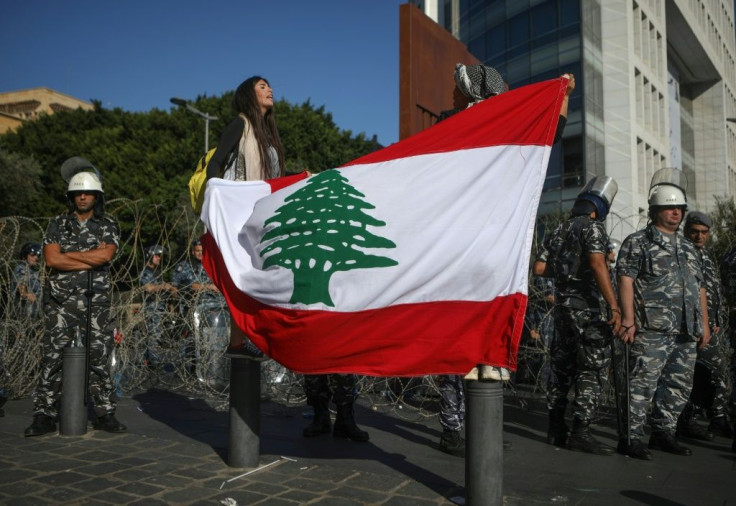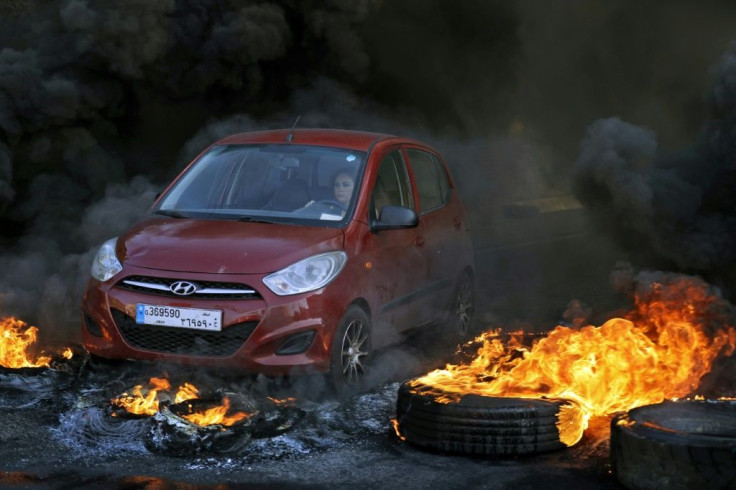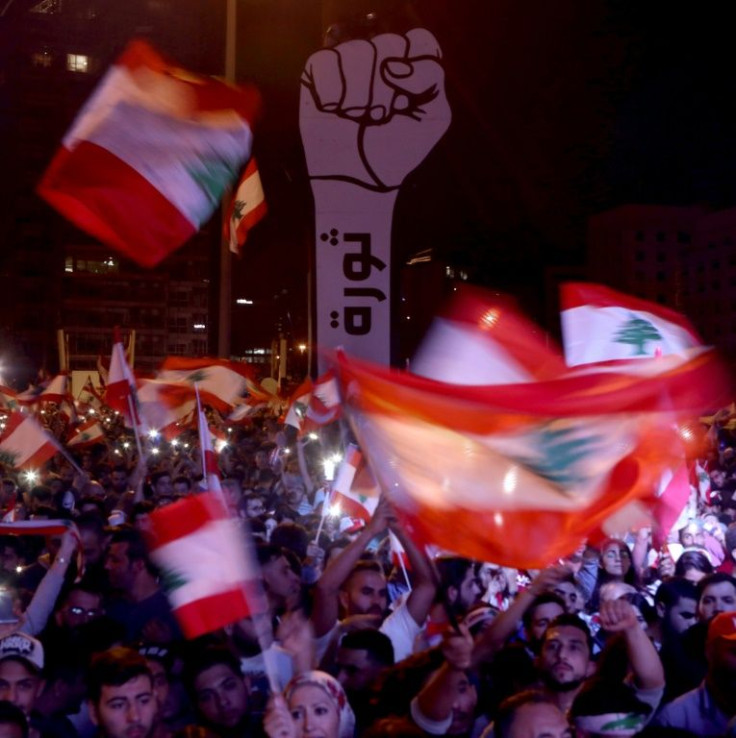Protesters Say 'Real Independence' Close As Lebanon Turns 76

Lebanon was marking 76 years of self-rule on Friday, but protesters say that only this year are its people experiencing "real independence".
An unprecedented protest movement has gripped the small Mediterranean country since October 17, demanding the complete overhaul of politicians deemed inept and corrupt.
The demonstrations have brought together people from across sectarian lines, and given them hope that change might finally sweep away a system they say is broken.
"It's the first time Lebanese from all religious communities have protested en masse without a political party calling for it, and against all parties," said 21-year-old university student Tamara.
"That's real independence -- one that's organic".
On November 22, 1943, Lebanon achieved independence after 23 years under a French mandate, following a wave of demonstrations that brought together the country's Christians and Muslims.
But the country was ripped apart in the 1975-1990 civil war.
Two more foreign powers occupied the tiny multi-confessional country -- Israel from 1978 to 2000, and Syria from 1976 to 2005.
A post-war accord sought to share out power between Lebanon's various religious communities, but the country remained deeply divided along sectarian lines.
Wajed, 26, said this year's Independence Day will be different.
"We want to emancipate ourselves from the corrupt people governing us," he told AFP, his beard shaved short and a cap on his head.
"After the French left, others occupied us," he said, alluding to Lebanese politicians, some of whose families have been in power ever since.

In the face of such anger from the street, Lebanese president Michel Aoun again called for dialogue Friday, saying in a televised address that was "the only pertinent path to solving the crisis".
After more than a month of protests, a large military parade along the seafront has been cancelled, and replaced by a smaller event at the defence ministry instead.
Wajed said the changes in state festivities was just the latest "victory" for protesters.
The street movement brought down the government last month, though a new cabinet has yet to be formed.
On Sunday an independent candidate was elected head of the Bar Association, and on Tuesday demonstrators successfully prevented a parliament vote on a controversial amnesty law.

Two people have so far been killed during the protests.
Activists have called for "civil marches" to take place nationwide on Friday as Lebanese of all ages maintain hope they can fix a broken government, draw the country out of endless political deadlocks, and revive its crumbling economy.
On social media, they urged protesters to wave high "the light of the independence" after nightfall -- whether with a candle, lighter, or the torch on their mobile phones.
In the southern city of Sidon, an event has been planned to beam light against "obscurity, theft, corruption, and poverty".
A revised version of the national anthem is making the rounds online to celebrate Lebanese women, many of whom have played a central role in the recent protests.
There have been other large protests in Lebanon in recent decades, but none this big have been spontaneous.
In 2005, a huge street movement managed to end the Syrian occupation.
But that was called for by anti-Syrian political parties after former premier Rafik Hariri was killed in a car bombing they blamed on Damascus.
Dina Abu Dahr, 55, said she felt "different" about the national holiday this year.
"It's the first time independence means something to me," she said.
Near a huge mosque in central Beirut, Youssef el-Gherez agreed.
"This independence is an independence of mind, body and spirit," said the 26-year-old.
"People are starting to change their habits," he said. "They want to change things deeply, all the way to the roots."
Motivated by the protests, some members of Lebanon's huge diaspora have also planned to fly home to take part.
Tracy Saad, 23, said she would be heading back from the Netherlands to "celebrate independence from the warlords and their sectarian regime", referring to politicians who once headed militias during the civil conflict.
The idea of a mass homecoming took life on social media, she said, and then those interested managed to negotiate cheaper air fares for the occasion.
In total, some 600 people are expected to travel in from the Gulf, Europe, North America, and even Australia, and make their way to Beirut's iconic Martyrs' Square.
© Copyright AFP 2024. All rights reserved.




















